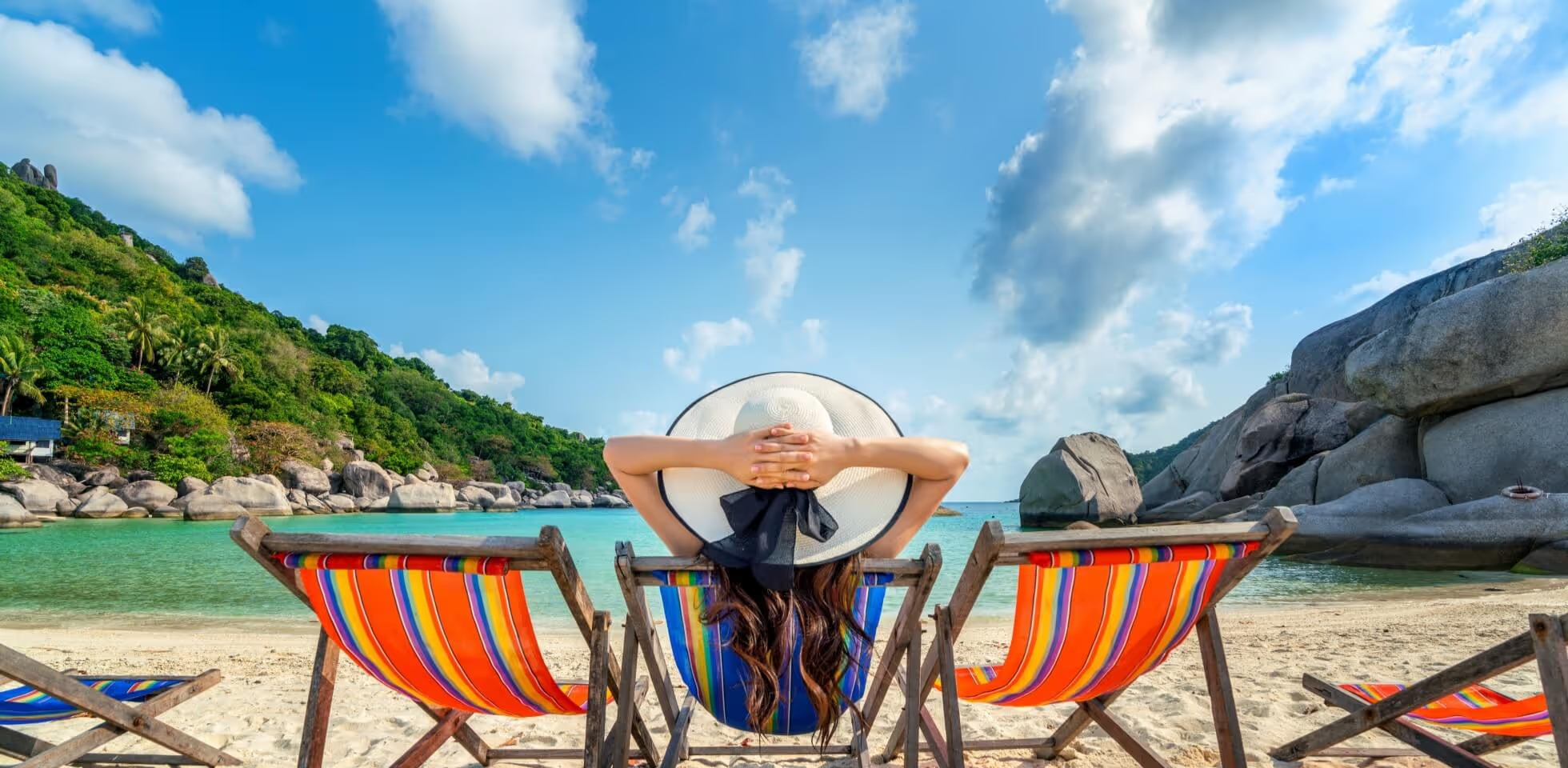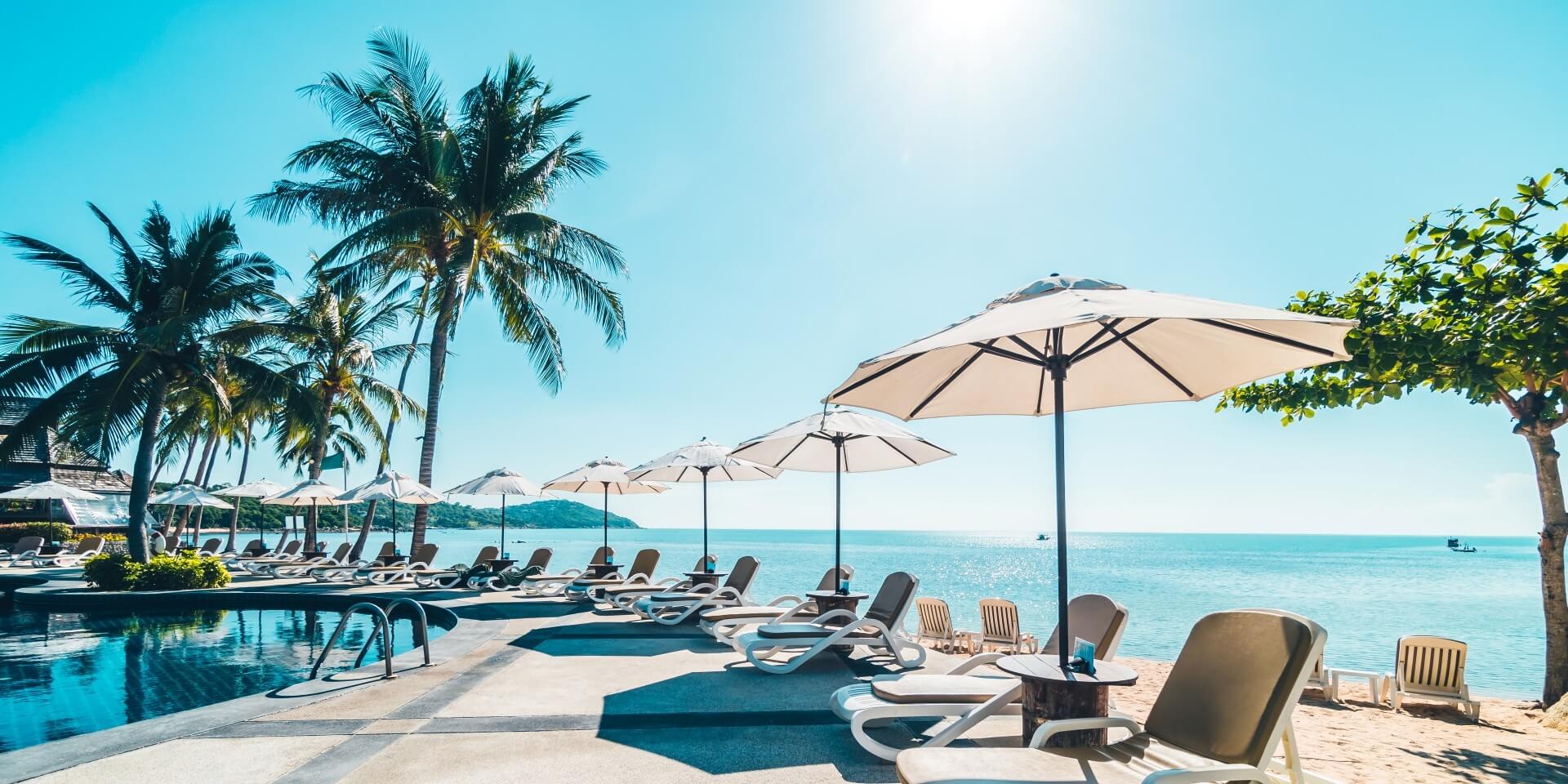Travel marketing awards? Sure, they look nice on the shelf. But here’s the real prize: more bookings. No matter how dazzling your campaigns or how pretty your website, if those efforts don’t fill seats, rooms, or tours, they’re not helpful.
The award every travel brand really wants is a steady stream of customers hitting “Book Now.” You don’t need a trophy to know your marketing is working. You need results. And if you're a travel brand looking to grow sustainably, it's time to focus less on what looks good and more on what performs.
Here’s how to win the one award that counts: a full calendar, happy customers, and a strong return on your marketing spend.
1. Start with strong brand foundations
Great marketing starts with a great brand. If your travel brand isn’t built on clear values and a distinct position in the market, everything you create – from your website to your social media – will struggle to connect or convert.
Ask yourself:
- What do we stand for?
- Who exactly are we targeting?
- What makes our experience different from others in our space?
The travel market is crowded. “Luxury,” “authentic,” and “immersive” are no longer enough to stand out. Your brand needs to make a clear promise and deliver a specific emotion. That might be adventure, simplicity, trust, joy, or connection – but it has to be something people can feel and remember.
That’s where brand identity comes in. It's more than just a logo or colour palette – it's how your brand shows up visually, verbally, and emotionally across every touchpoint. It includes:
- Your tone of voice (is it playful, expert, relaxed, premium?)
- Your visual identity (from typography and photography to layouts and colours)
- Your story (the why behind what you do)
- Your messaging hierarchy (what you say first, and what you say often)
Together, these elements help you communicate consistently, build trust quickly, and create a brand experience that feels deliberate and desirable, not generic.
2. Treat your website like your top salesperson
Your website should actively drive bookings while providing clients with all the information they need to make an informed decision about their trip. For most travel brands, your website is the most valuable asset in the marketing mix. But too often, websites are clunky, slow, or designed with aesthetics in mind, not usability.
Here’s what a high-converting travel website needs:
- Clear positioning above the fold. Visitors should know what you offer and who it’s for within three seconds.
- Easy navigation. Don’t make users dig to find tours, dates, or booking buttons.
- Mobile-first design. Most travel research starts on mobile.
- High-quality images and videos. Let your destinations or experiences speak for themselves.
- Strategic calls to action. “Book now” is great. “Start planning” or “Check availability” can work better for earlier-stage visitors.
- Trust signals. Reviews, partner logos, press features, and security badges reduce hesitation.
And don’t forget speed – if your site takes longer than 3 seconds to load, especially on mobile, you're losing potential customers before they even see what you offer.
3. Build a content strategy that fuels the funnel
Inspiration is a key part of travel marketing, but content must go beyond wanderlust to drive real results. That means having a strategy that attracts, nurtures, and converts potential travellers.
Here’s how to think about it:
Top of funnel (awareness)
- Blog posts about destinations, trip planning, or unique experiences
- Social media content that entertains or educates
- Email newsletters that inspire
Middle of funnel (consideration)
- Itinerary examples, packing guides, and “how to choose” content
- Video walkthroughs or customer interviews
- Lead magnets like downloadable travel planners or quizzes
Bottom of funnel (conversion)
- Clear pricing or package details
- Customer testimonials
- Fast, simple enquiry or booking process
Every piece of content should have a goal. It might be to educate, to inspire, or to convert – but aimless content is just noise.

4. Prioritise SEO, because people can’t book what they can’t find
The best travel marketing awards won't help if you're invisible on Google. SEO is a long-term, high-impact way to drive qualified traffic to your site – and it’s especially powerful in travel, where people research heavily before they buy.
SEO tips for travel brands
- Target long-tail keywords like “family-friendly safaris in South Africa” or “best time to visit Iceland for the Northern Lights.”
- Optimise your blog posts, destination pages, and image alt text.
- Make sure your site structure is clean and logical – it helps users and search engines.
- Add schema markup (like review or FAQ schema) to stand out in search results.
- Focus on local SEO if you have a physical base or run regional experiences.
Also, update content regularly. Travel information changes, and search engines love freshness.
5. Optimise for SEO in an AI-driven world
Travel discovery is changing fast. With the rise of AI tools like ChatGPT, Google’s Search Generative Experience (SGE), and voice assistants, travellers are no longer just typing keywords into a search bar. They’re asking complex questions, expecting smart answers, and often making decisions before they ever click a link.
That means your travel brand’s content needs to do more than rank – it needs to be understood, trusted, and referenced by AI.
Here’s how to position yourself for this shift:
- Write like a human, structure like a machine. Use natural language and conversational headings, but structure your content clearly with H1s, H2s, and bullet points so it’s easy for AI to parse.
- Answer real questions. Create content that responds directly to queries your audience is asking – think “best places to visit in Bali for solo travellers” or “how to plan a safari with kids.”
- Use semantic SEO. Go beyond exact-match keywords and incorporate related terms, FAQs, and contextual information that help AI understand the meaning behind your content.
- Optimise for featured snippets and ‘zero-click’ results. These are the answers AI often pulls from – aim to be the source.
- Build topical authority. Don’t just write one blog post on a destination – create clusters of related content to show depth, trust, and expertise.
- Get your technical SEO right. Fast load times, clean URLs, mobile-first design, and schema markup (especially for things like reviews and FAQs) all improve your visibility in AI-driven search environments.
Top tip: To learn more about how to get your brand featured in AI results, click here.
Travel brands that ignore this shift risk disappearing from the future of discovery. But those who adapt early can gain a serious edge, showing up in voice searches, AI trip planning tools, and intelligent recommendation engines before their competitors even realise what’s changed.
Read more on AI and travel here.
6. Don't forget about post-booking marketing
Many travel brands stop marketing once the booking is made – but that’s a missed opportunity. A thoughtful post-booking experience can turn one-time customers into loyal advocates.
Some ways to keep them engaged:
- Pre-trip emails with helpful content (itineraries, packing tips, local advice)
- Branded digital materials that they can share
- Automated feedback requests or referral links after their trip
- A follow-up email campaign to promote future experiences
It’s easier (and cheaper) to get repeat bookings from existing customers than to acquire new ones. So don’t treat the end of the trip as the end of the journey.
Real results beat recognition
At the end of the day, travel marketing awards look great on your shelf – but they’re not the reason you’re in business. Bookings are. That’s what keeps your tours full, your team employed, and your brand growing.
If your current marketing isn’t delivering, it’s time to reassess. Maybe your brand message is unclear. Maybe your website’s holding you back. Or maybe your content is inspiring but not converting. You don’t need to chase awards. You need to win your audience.
Ready to build a brand and website that turns browsers into bookers? Talk to Boost Brands. We help travel brands grow through smart strategy, standout design, and performance-focused marketing.





